The dangers of passive
'It's a virtuous cycle, but it's also a Ponzi cycle'
"If it turns out it really was just a lone shooter I won’t be flabbergasted, but it requires a level of incompetence that I would not have believed possible for Secret Service.”
Friend of the show Chris Martenson has taken an extensive look at the shooting - especially the audio evidence - and believes there were multiple shooters. As I type this, I’m watching Secret Service Director Cheatle testify before the House Oversight and Accountability Committee. She does not come across as being honest or forthright and is refusing to directly answer most questions. Just take the Fifth next time.
Our country does not have a good recent track record of holding anyone at a high level to account, or doing non-partisan and thorough investigations.
It’s been an eventful month.
”The fact is that if Kamala Harris was not vice president, she would never be next in line to be the Democratic nominee.” - Chris Irons
“It irks me a lot when people try to say that Peter Thiel is a Libertarian. Certainly he claims that publicly in his speeches and books, but if you look at his actions and what he has done creating a tool like Palantir for the federal government is literally the least libertarian thing you could do. Nothing empowers the worst aspects of the state more than a company like Palantir.”
Whitney Webb on Redacted
fyi I will be doing another podcast with Jim and Bob on the Futures Edge podcast tomorrow, and will post it when available.
“Getting out of a profitable trade is the single hardest decision.”
Jeff Currie
The Super Charged Capex Cycle with Jeff Currie “The one thing I will say: inflation is 10 times more important to voters than foreign policy. Ten times more important to voters than even climate change.”
“Lower income groups are the core of commodity demand. They are what creates the demand at the margin. I like to point out a rich guy is gonna eat the same amount of corn throughout the cycle - it's that lower income guy that's going to change how much corn he eats…”
Dillian: “Somebody is getting carried out on a stretcher with this trade…you look at a chart of the Russell, it's kind of trucking along, and then it just goes straight up. It's just a straight line up, and it's up 10 and a half percent in 5 days, while the S&P is down, right? So obviously what's going on here is a big factor unwind. Every Quant Fund in the country was long large-cap growth, short small-cap value. They had that trade on for years, and when we got the CPI report last week that came in at 3%, that's what kicked this off, and that trade has gone totally psycho, and small caps are ripping.”
”The Democrats are going to win” - Dillian. He thinks we’re currently at peak-Trump. He said this before Biden stepped down.
“Those whom the gods wish to destroy, they first make mad, and American policy makers fit that bill.”
“There's a very famous line from Euripides, the Greek playwright: Those whom the gods wish to destroy, they first make mad, and American policy makers fit that bill, because the essential element that they've now introduced into the mix - which wasn't there before - was they've started to weaponize the dollar in different ways mainly to achieve political not economic objectives. For instance, you actually have this thing, after the Ukraine conflict started, to exclude certain entities from the international payment system like SWIFT -which by the way isn't a US system, it's actually based in Brussels - so you're trying to get other people to do your bidding. Where it's really problematic is in two areas: one is what we call secondary sanctions. Let me give you an example. I'm an Australian company doing business with China, and let's say we make payments in US Dollars. Now under U.S. law now, if the person I'm dealing with is sanctioned by the US, and I pay them in US Dollars - which is legal in both China and Australia, but the US dollars obviously flow through the US banking system - I am actually in breach of US sanctions, and if I land in the US, I can be given an orange suit and locked up. That's just insane.”
Half of large U.S. banks are failing on operational risk, secret report finds
“A key U.S. regulator has privately found half of the major banks it oversees have an inadequate grasp of a broad swath of potential risks from cyber attacks to employee blunders, according to people familiar with the matter.
In the confidential assessments, the Office of the Comptroller of the Currency said 11 of the 22 large banks it supervises have “insufficient” or “weak” management of so-called operational risk, said the people, who asked not to be identified because the information isn’t public.”
“It's a virtuous cycle, but it's also a Ponzi cycle, right? And it has important ramifications for other businesses that don't happen to be part of these select few”
Mike Green on the passive problem…
“People presume that they're saving in the S&P 500. It's not a savings account, it's a risk asset. It has uncertain return potential associated with it, and for people as they get older that's a really inappropriate allocation to be 70, 80, 90, or 100% in equities. We just see too much of that at this point.”
If you’re unfamiliar with Mike’s passive thesis, you should check this out.
I have not fact-checked this, but Mike Green mentions this in the podcast:
As I’ve mentioned before, Mike is the best at explaining the dangers of passive (price-insensitive) investing. Someday this will work in reverse.
“Remember, a significant fraction of the cash that's used to repurchase shares is actually coming from the issuance of those shares themselves, so if I issue a call option at $110, and my stock is currently at $100, it goes to $120, the employee has to exercise that call option. That means that they sell the shares for $ 1220 pocket $10 for themselves, and pay the company $110, right? So a huge source of cash flow that's coming into many of these large companies is actually coming from that share issuance…
It's a virtuous cycle, but it's also a Ponzi cycle, and it has important ramifications for other businesses that don't happen to be part of these select few. They can't possibly compete in terms of hiring employees. Their business models don't allow them to raise prices, because they've got cash-enhanced competitors that are receiving the cash flow associated with this stealth issuance that allows them to compete without a hit to profit margins. This ripples through our society in a very profound way that I would argue we haven't even begun to consider.”
Mike sounds about as apocalyptic as I’ve ever heard him in this interview.
"The next time some somebody buys $SPY, just say 'I'm buying Nvidia,' because that's essentially what you're doing, and I'm not saying that's bad. I'm just saying understand the trade that you're making."
Walter Schloss “compounded his capital at 21% for 50 years.”
“With the S&P 500 trading north of 25 P/E and many of the world’s great companies trading at 40 P/E or higher (Costco is now at 55 P/E!), I think we could be at valuation levels that might lead to disappointing results for these stocks over the next 5-10 years, even if the businesses continue to do well (which I expect many of them to do)…A cut from 40 P/E to a more normal 20 P/E is difficult to overcome over even a long period — a stock that grows earnings at 12% annually for a decade would lead to just a 4% annualized return in the stock if the multiple fell by half over that time. Most of the world’s best businesses today will not grow at 12% annually over the next decade (though a very select few might). It’s far more rare than people realize, especially for companies that grew this fast or faster over the previous decade…
I was not investing (or doing anything else) during the late 60’s and early 70’s, but if you study that time you’ll notice some common themes. Two great books on those two boom decades are Bull (the 1990’s) and The Go-Go Years (1960’s).
Walter Schloss is one investor who capitalized on the values that arose after the bust that followed the boom of that latter period…Schloss was focused on downside protection, which he prioritized through investing in stocks that traded below an easily identifiable net asset value (he often used tangible book value) and that also had great balance sheets. He used the numbers and ran an insurance type approach that utilized the law of large numbers approach where any one stock might not work out, but “if you have 15 to 20 of them”…
It's amazing how simple Schloss's strategy was and how well it worked. He must have mentioned 10 times "I don't like to lose money" and probably another 10 times warning about debt.
In a nutshell, he was a classic Ben Graham style investor that looked for stocks trading below net asset value. He wanted good companies, but was willing to own average ones if he felt the asset value was there. He didn't talk to management. Wasn't concerned too much with thinking about the company's long term prospects or competitive position, didn't think about the economy or stock market. He just bought value, sold it when the value gap closed, and repeated the process over and over again.
$399 Billion used to be a lot of money
"5 decades ago, Nixon was president...and the typical home in San Francisco cost just over $28,000. That wasn’t an insignificant amount of money in 1970 — roughly $209,000 in 2022 dollars…"
When you read something like "$28,000 in 1970 is equivalent to $209,000 in 2022" - remember, they are using the BLS CPI to come up with this nonsense. The CPI (or PCE) models have very little to do with real world cost of living.
So what happened since 1970? The currency changed.
Trepp is trying so hard…my inbox Friday…
Episode 267. Regional Fed Beige Book Update, CMBS Trading Alerts, Rent Control Rundown
Macroedge Twitter Spaces with Melody Wright Always some good real estate insights
“Since the crisis and because of Basel 3, many banks kind of scale back their lending, and so now the majority of mortgage lending happens in the non-banks…so non-banks are not tracked by FRED. Now Black Knight has banks and non-banks, but it's important which ones they have…Black Knight has a lot of servicers on their system, but not many of the smaller specialty servicers…
If you look back historically, think about who the FHA is, and a lot of people when I show these charts say, well, it's not that big of a deal. It's not that much of the market. In reality, it's about 17% of outstanding mortgage mortgages, and that has doubled since 2009, and this is truly government subprime. These are 580 credit scores, 620 credit scores, low down payments…”
Melody Wright on her Youtube channel
“You don’t know if there are defaults because there are no covenants, right?”
“A collection of 54 prominent public pensions analyzed by Center for Retirement Research at Boston College committed an average 13% of assets to p.e. as of fiscal 2023, up from 7% in 2008…
Private equity exits in the U.S. registered at $141.4 billion over the first six months of 2024 per data from Cambridge Associates, laboring to match 2023’s near $300 billion full-year pace, which marked the slowest showing since 2012. Cash distributions to limited partners likewise registered at 11.2% of fund net asset values in calendar 2023 according to Raymond James, the weakest figure since 2008 and less than half of the 25% median logged over the past quarter century (Grant’s Interest Rate Observer, March 29).
Evidence of a lurch higher in portfolio company problem-children accompanies that slowdown. The tally of distressed debt among holdings of the 50 largest p.e. firms reached $42.7 billion, Bloomberg-compiled data show, up 18% from the middle of March. To contend with the post-2021 updraft in borrowing costs, p.e. players increasingly opt to shift troubled assets to new entities that they themselves manage, with the number of so-called continuation funds seeing a “considerable uptick” over the three months through June, according to Jeff Hammer, global co-head of secondaries for private markets at Manulife Investment Management.
Loose legal documentation for buyouts during the freewheeling, bygone ZIRP-era credit cycle likewise serves to obscure the true state of play. “You don’t know if there are defaults because there are no covenants, right?” Zia Uddin, president and co-portfolio manager at private credit firm Monroe Capital, rhetorically asks Bloomberg. “So, you see a lot of amend and extend that may be delaying decisions for lenders.”
The fact that 99% of secondary market transactions for p.e. holdings last year took place at or below the net asset value according to Jefferies, up from a 73% share in 2021, may represent an ill omen for cash-hungry LPs.
On the bright side for public pension Johnny-come-lately’s, any prospective misery from an extended industry downturn would certainly be shared across the most hallowed halls of academia.
Thus, endowments for the eight colleges constituting the Ivy League, along with Stanford University and the Massachusetts Institute of Technology, allotted an eye-watering 36.7% of assets to p.e. on average during fiscal 2023, a newly released report from Markov Processes International finds, while the ratio of unfunded commitments to liquid portfolio assets at Brown University, Harvard University and Princeton University stood at 78%, 60% and 52%, respectively.”
A review of sorts of J.D. Vance’s Hillbilly Elegy (which I have but have not read, as I subscribe to Umberto Eco’s library of unread books.)
“Considering the Palantir connection, all this data mining stuff, the CEO of Palantir is like, ‘I don't like Christian conservatives,’ and they've all sort of been herded onto Rumble. So your Rumble account, the videos you watch, the videos you like, what you say in the comments - can we trust that it doesn't get sent off to Palantir, considering the mutual Peter Thiel connection? I don't know. I would like someone to ask the Rumble people that question, but either way, because of the extreme funding um of alternative media by Peter Thiel, very few people talk about him, and very few people talk about Palantir, and it's been that way for several years. Hoping that will change. The question is, obviously the government in the US now is terrible, but people need to think seriously about what the stakes are, and how many election cycles this country can go voting for the lesser of two evils. If you're going to get the same bipartisan surveillance police state agenda regardless of who you vote for, is that really what we want to keep doing? Is that really how we fight and stop this?”
Whitney Webb on TFTC
The UFO Program, Interactions with Nonhuman Intelligences, & Experiencers with Jim Semivan
“Jim retired in 2007 after a 25-year career in the Central Intelligence Agency’s National Clandestine Service. At the time of his retirement he was a member of the CIA’s Senior Intelligence Service. Jim served multiple overseas and domestic tours along with senior management positions in CIA headquarters. He is the recipient of the Agency's Career Intelligence Medal.”
“I'm actually pretty sure that that most people - particularly in the government - don't really understand this phenomenon very well. They know it's real, and they know that it has an intention, but they're not sure what the intention is, why things happen the way they happen. They have a a a decent idea of their capabilities, but when I say that, I mean there's a superficial understanding of both their intentions and their capabilities. They don't know the full capabilities, they don't know the real intentions.”
(I personally find it interesting that the assumption is generally that the phenomenon - whatever it is - is from “outer space,” rather than part of the Earth since the beginning, as Professor Garry Nolan and a number of others like John Keel and Jacques Vallee suggest.)
Later Semivan says:
“There's another presence in the universe which visits us, and we don't understand it, but it's capable of transforming itself into anything it wants to. It can manipulate matter, it can manipulate the electromagnetic spectrum, it can show us things that may be real or may not be real. It can be real and not real at the same time.”
In the interview there’s the usual lamenting that humans may not be ready for all of this, and that society might somehow disintegrate if we realized that there were forces more powerful than us out in the Universe, all of which I find unconvincing.
First, you may believe all of this is nonsense, which is fine. There is nothing other than science and empty space. Or you may think that this is all a government psy-op, and certainly there have been a lot of those over the years related to the UFO topic. Atheists may shrug and think, well, it’s just weird science I don’t quite get, but so what? As for the majority of humans who already believe in a god, I don’t see why they would be shocked by the existence of “non-human intelligence.”
“…the kind of disclosure movement over there in the States, especially, and you know there's something of a little bit of a smile with this, particularly when they begin to talk about, well, if nonhuman intelligence is revealed, you know all of the religions and all of the spiritualities of the world will fall, or will collapse, or there'll be chaos, whatever, and that's forgetting that actually the religions have taught that there's non-human intelligence from the very beginning. Now, okay, we might have difference in terms of how we categorize or how we encounter or how we relate, that's fine, but there's certainly no difficulty in understanding that nonhuman intelligence exists.”


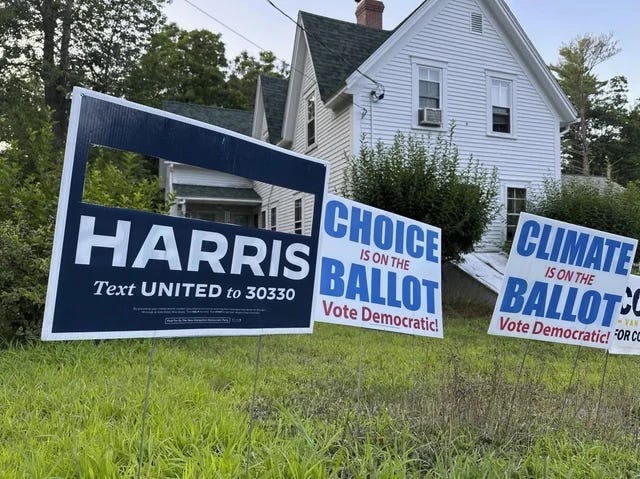
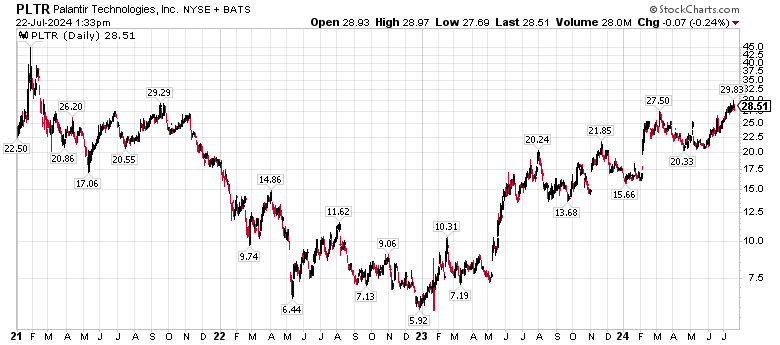

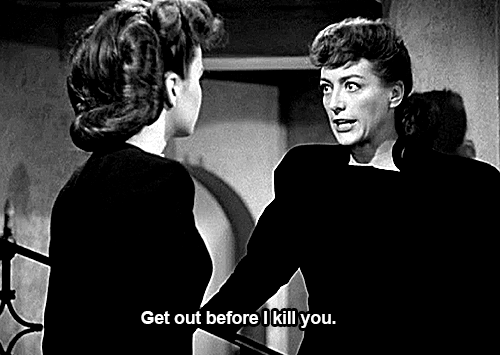
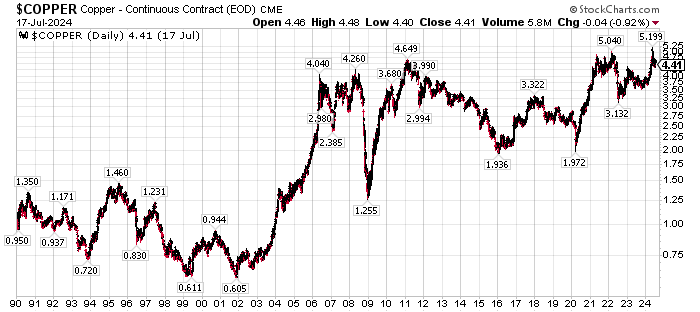
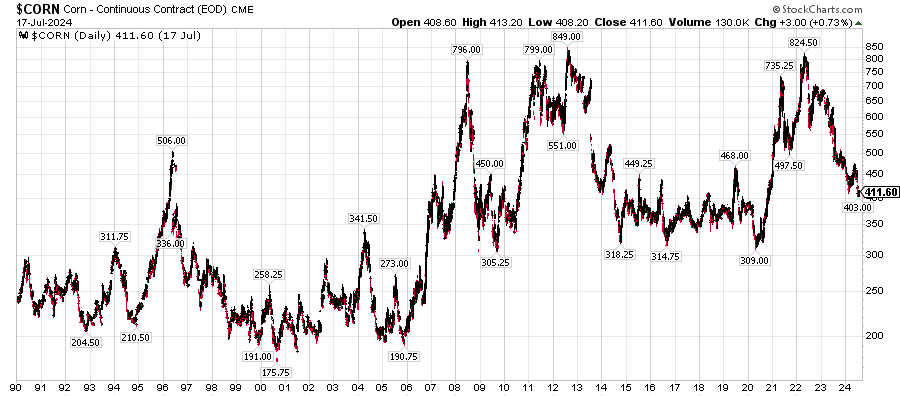
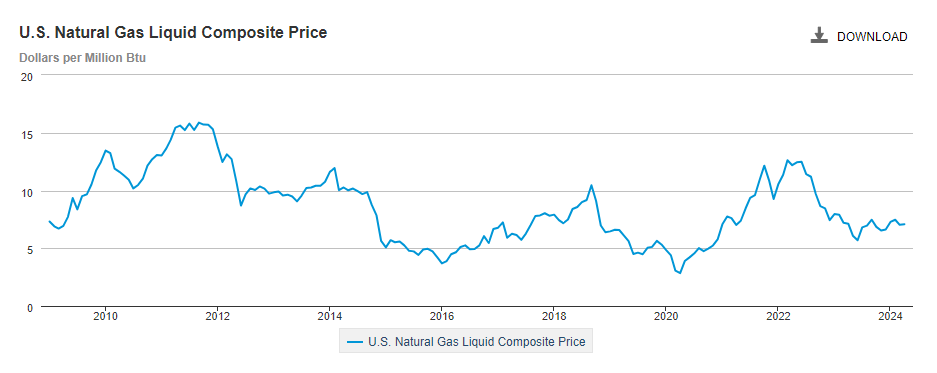
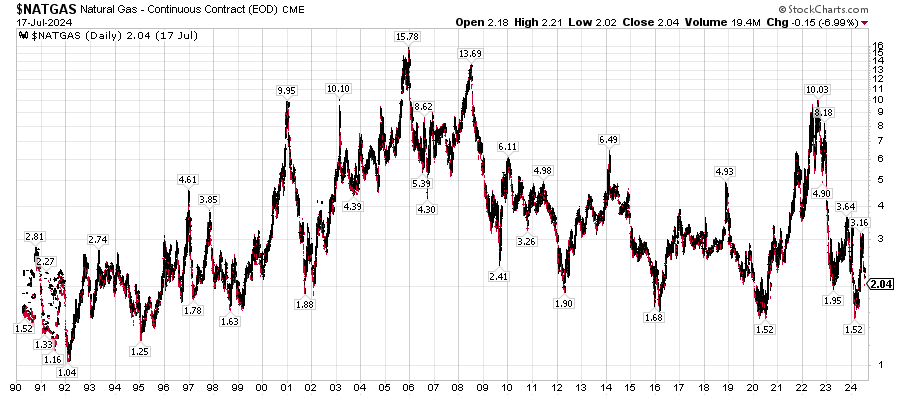
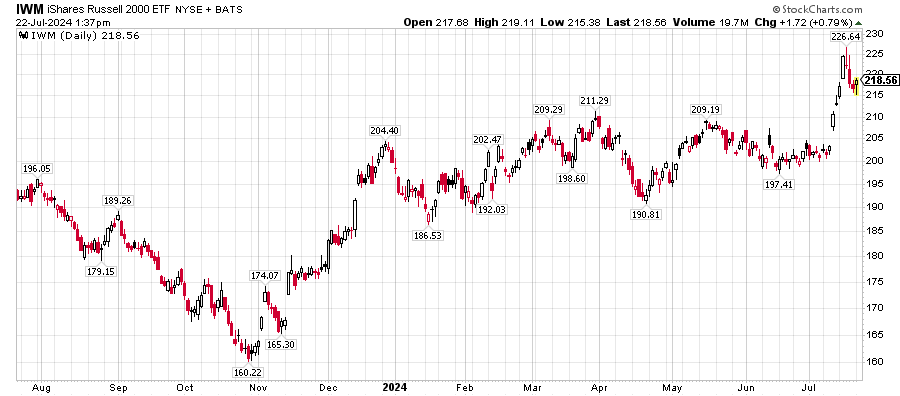
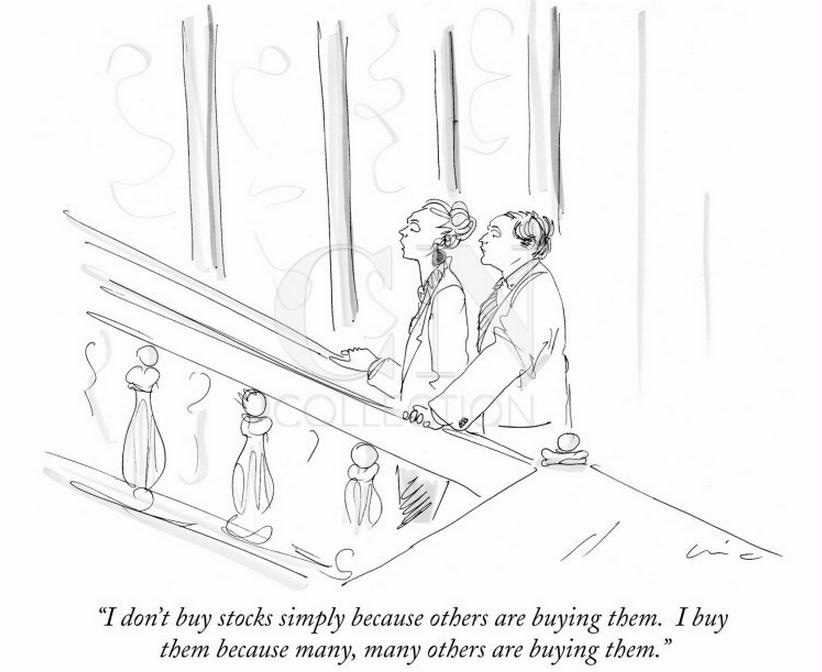

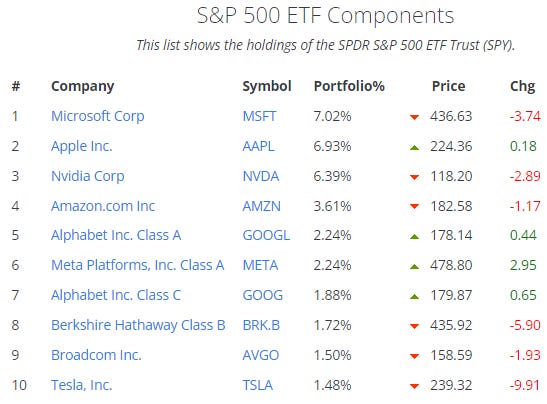
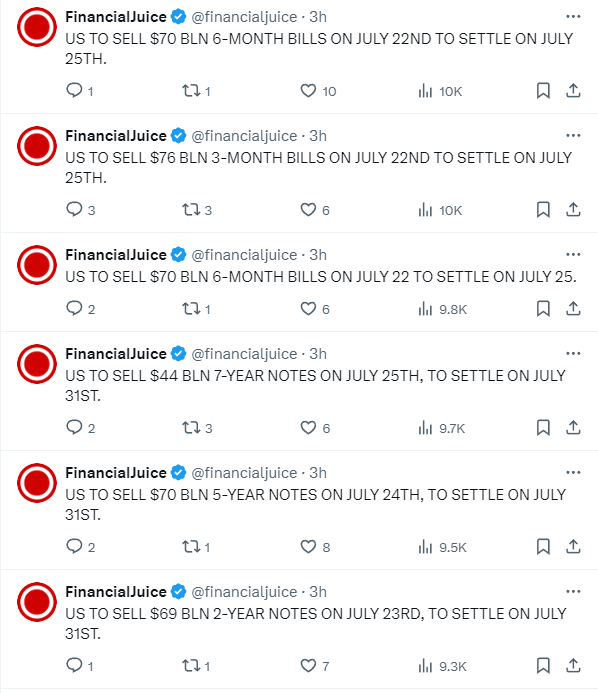


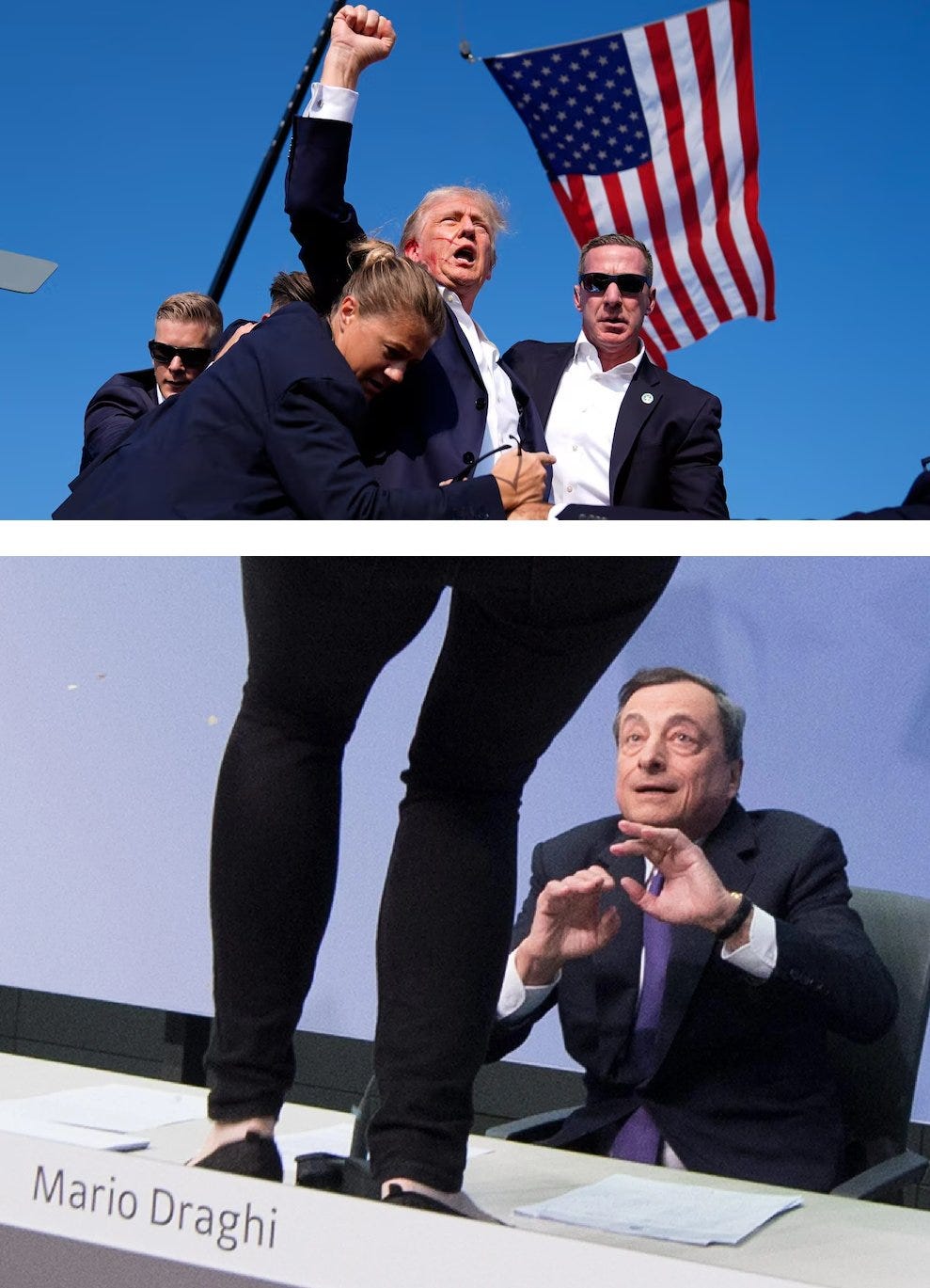
“Getting out of a profitable trade is the single hardest decision.”
Interesting thought from Greg. I’ve never had any issues exiting a profitable trade. Dumping a loser is more difficult for me.
It's a truly crazy time, and I am thankful for your posts which keep me sane :). Thank you.